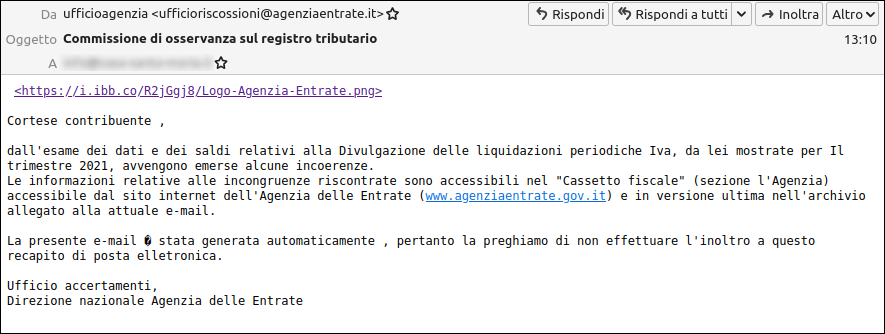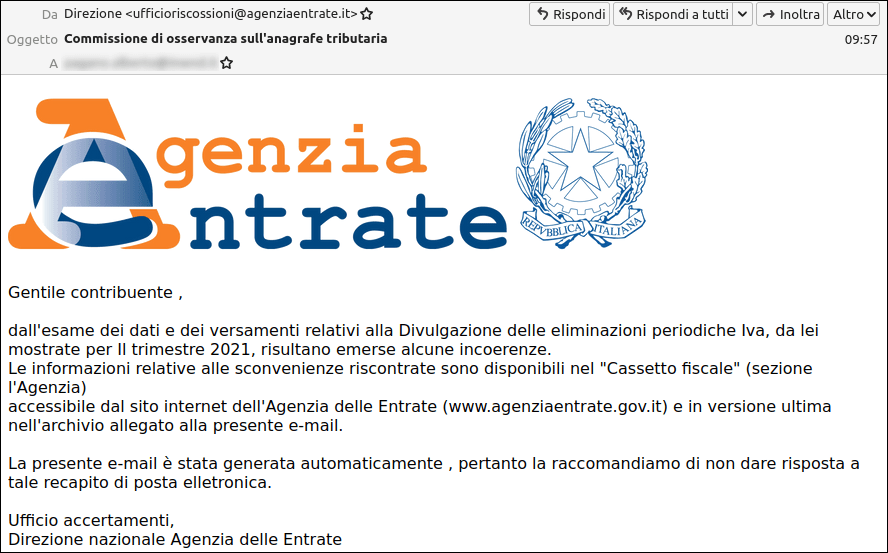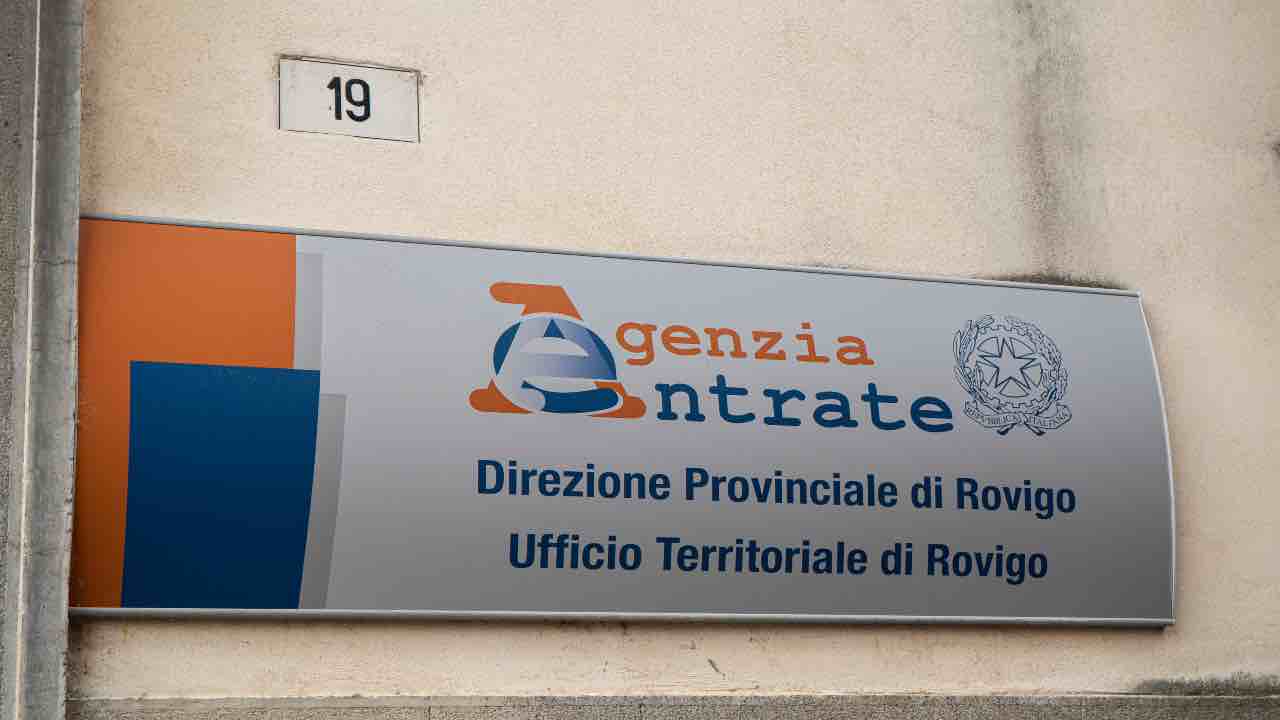The Agency warns users of the phishing campaign that is raging these days. Instructions to defend yourself
Since the beginning of this year, theRevenue Agency is committed to collecting applications for bonuses and family allowances, and everything else concerns the various benefits, including extras, which have been poured into citizens since last year. Among these we also find the refund requests that often pass through online platforms.
This circumstance has attracted, in recent days, an intense campaign of phishing to the detriment of citizens, who are added to the long list of precedents “Attacks”. In fact, the Revenue Agency can represent an almost “obvious” interface if we want to refer to the reliability of an entity, under the mask of which those criminals are hidden in search of our sensitive data and, even better, the extremes of our bank account and credit card.
Revenue Agency, beware of “dangerous” investigations via email


Under the classic “benevolent” digital communication, the current phishing campaigns concerning the Revenue Agency are manifested through a dual form circulating via email and arriving punctually at the citizens’ e-mail boxes. In addition to paying the necessary attention, the simple consideration of some aspects, very trivial, from the point of view technicalit can be the best defense against running into a real scam.
Read also: Bancomat, what can happen when you pay with the Pos
The first form of “scam” consists in the email informing of a tax refund to be obtained by filling in a “Refund form”of which the link. In essence, it is a bit of a copy of a previous campaign that the Revenue Agency reported on 2 December 2020 on its website; in the current attempt, the traits of the fraud can be revealed because they even correspond to the same grammatical errors.
Read also: Inps check, new help for mothers with the ISEE
The second, on the other hand, speaks of alleged inconsistencies about periodic VAT communications; also in this case, the Agency finds similar characteristics with the campaign subject of the notice dated 11 January 2022, although there are two variants of the latter. Inside, the text with information on the detection of inconsistencies was appropriately updated and is accompanied by a risky file. It is therefore recommended, as always, not to open the attachment and to delete the message.
–


